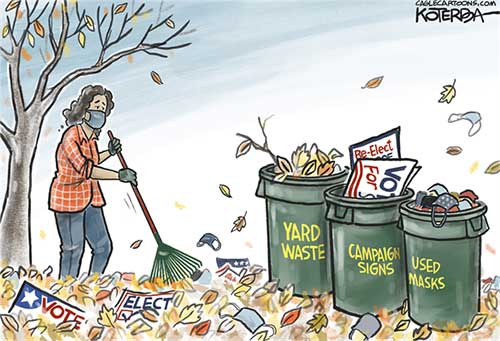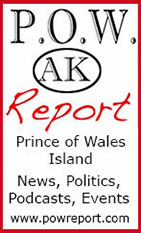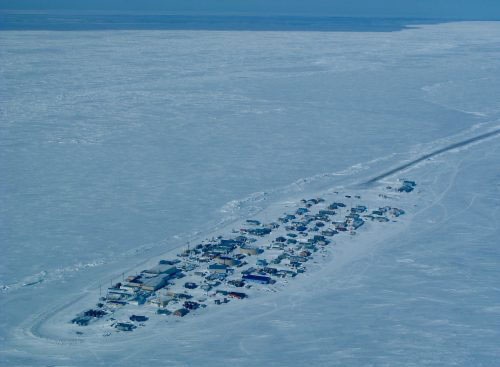














 Contact Contact 
 Webmail
Letters Webmail
Letters
 News Tips News Tips
 Copyright Info Copyright Info
 Archives Archives
Quick News
Search
 Alaska Alaska
 Ketchikan Ketchikan
 SE Alaska SE Alaska
Columns
- Articles
 Dave Kiffer Dave Kiffer
 Money Matters Money Matters
Historical
Ketchikan
 June Allen June Allen
 Dave
Kiffer Dave
Kiffer
 Louise
B. Harrington Louise
B. Harrington
Sports
 Ketchikan Links Ketchikan Links
Public Records
 FAA Accident Reports FAA Accident Reports
 NTSB
Accident Reports NTSB
Accident Reports
 Court Calendar Court Calendar
 Recent Filings & Case Dispositions Recent Filings & Case Dispositions
 Court Records Search Court Records Search
 Sex Offender Reg. Sex Offender Reg.
 Public Notices Public Notices
 Alaska Recall Alerts Alaska Recall Alerts
 Recalls.gov Recalls.gov
 AST Daily Dispatch AST Daily Dispatch
 KTN
Police Reports KTN
Police Reports
 Juneau Police Reports Juneau Police Reports
Weather,
Webcams
 Today's
Forecast Today's
Forecast
 KTN
Weather Data KTN
Weather Data
 AK
Weather Map AK
Weather Map
 AK Weathercams AK Weathercams
 AK Earthquakes AK Earthquakes

|
|

Sunday
November 15, 2020

Sunrise From Berth 4
Deer Mountain and Ketchikan are in the background.
Front Page Photo By RACHELLE SPEIGHTS©2020
To have your photo(s) featured on the front page,
email your photo(s) to editor@sitnews.us |
 |
Alaska: Governor Dunleavy Strongly Urges Alaskans to Take Immediate Action to Slow COVID-19; Disaster Declaration Takes Effect Nov. 16th; Alaska in red zone for COVID-19 cases, emergency SMS text messages delivered - The rapid spread of COVID-19 cases across Alaska, especially among health care workers and other essential first responders, is placing the state’s emergency response and health care systems at urgent risk. Thursday Alaska Governor Mike Dunleavy urged Alaskans to take immediate action to combat the virus as the state remains in the red zone, indicating 101 or more new cases per 100,000 population.
By 10:00 am last Thursday morning, most Alaskans received an official State of Alaska emergency SMS text message stating COVID-19 cases are escalating and directed individuals to a video of the governor calling on Alaskans to work together to reduce infections over the next three weeks.
Mass production of vaccines is expected at the end of November, and will continue into December and January.
“My job as governor is not to tell you how to live your life. My job is to ensure the security and safety of Alaska. I can’t do that without your help,” said Governor Dunleavy in his video address.
Dunleavy said, “I’m asking you to reach deep for the next three weeks. If we can buy time for our critical workers – if we can keep our systems operational – we can avoid being forced to take further action. But if we cannot reduce the spread of this virus, we reduce our future options for how to proceed. No matter what you believe about the virus, the facts are the facts. Hospitalizations and sick healthcare workers are reaching untenable levels. We must act together now while we still have choices.”
Governor Dunleavy is taking the following executive actions: - More...
Sunday AM - November 15, 2020
Ketchikan: A Prince of Wales Canal?; A train was also considered to bridge SE's biggest island By DAVE KIFFER - At more than 130 miles in length, it takes a long time for a boat to get around Prince of Wales Island when it travels from Ketchikan or Wrangell to communities on the western side of the island.
Although float planes have now reduced that trip to roughly an hour, at one time it took days for boats to make the trip and the southern route, in the open ocean around Cape Chacon, was especially challenging and frequently dangerous in stormy weather.
"The closest business center to Sulzer (a Prince of Wales mining camp in the first two decades of the 20th Century) was Ketchikan and the trip between the two by boat was well over a hundred miles in length and required the rounding of Cape Chacon, exposed to the ocean and beset by tide rips," wrote historian Pat Roppel in an article on the history of Sulzer in the Alaska Journal in 1983. "At times, it was days, even weeks, before a small craft could double the dangerous cape and cross Clarence Strait to the sheltered waters at each end of the passage."
Not surprisingly early travelers looked for an overland route. Eventually, when the timber industry developed at mid-century, a road was punched through from Hollis on the eastern side of the island to Craig and Klawock on the western side. As the timber industry continued to grow the road was expanded to include communities from Hydaburg in the south nearly to Point Baker and Port Protection in the north and included western towns like Naukati and ones on the east side including Kasaan, Thorne Bay, Coffman Cove and Whale Pass on the east side of Prince of Wales.
But long before that, another - shorter - road was pondered to bridge the island at its narrowest point, the Portage Divide. A railroad was even proposed to cover the four-mile gap between Cholmondeley Sound on the east and Hetta Inlet on the west.
It makes sense. If you look at a map of Prince of Wales, the place to go from one side of Prince of Wales to the other is obvious.
Cholmondeley - or Chomly to the locals - is a deep inlet on the east of Prince of Wales that extends more than 16 miles in from Clarence Strait, ending in West Arm.
On the other side of the island is Hetta Inlet, which extends about 10 miles from Cordova Bay into the center of the island, ending in the appropriately named Portage Bay. Although both Hetta and Cholmondeley are ringed by 3000-foot mountains, there is a "divide" between the two that is no more than 200 feet high and just about four miles long. In fact, after the Panama Canal was built in 1914, prominent Ketchikan businessman J.R. Heckman proposed a similar canal that would connect Hetta and Cholmondeley through the divide to replace the plank road that was completed several years before.
"The portage from the head of Hetta Inlet to the head of Cholmondeley Sound is probably an ancient one, used by generations of Indians," Roppel wrote in 1983, noting that a trail in use around 1900 allowed for monthly freight and mail shipments to become weekly ones. "At Ketchikan, the Mining Journal reported on Sept. 14, 1901 that E.A. Von Hasslocher, agent for the Alaska Launch and Tugboat Company and mail contractor on the route had a survey made of the portage with a view to building a narrow-gauge railroad as soon as more mining developed in the area."
Most of the mining in that area was copper mines and although the Jumbo Mine at Sulzer and the Copper Mountain mine at Coppermount were two of the larger copper producers in Southeast Alaska, the rapid fluctuation of copper prices early in the century kept other mines from developing and the "divide" train stayed on the drawing board.
But that didn't stop efforts to build a road from Chomley to Hetta over the divide. Besides Sulzer and Coppermount there were numerous other smaller communities in the area and when it was proposed that three smaller Haida villages - Howkan, Klinkwan and Sukkwan - be merged into a single new village - Hydaburg - just a few miles from the entrance to Hetta Inlet, plans were made to expand the rough trail into an actual road. Hydaburg would be established in 1911.
In April of 1905, the Mining Journal reported that the divide trail was in bad condition as it ran through the lower part of the dive that was wettest and covered in muskeg. The paper reported that a petition had been sent to the Alaska Road Commission asking for a road across the four-mile portage. The Road Commission had just been formed a couple months before but it acted quickly and sent Lieutenant G. B. Pillsbury and D.S. Whitfield down from Juneau to survey the portage.
A report by the Road Commission in 1906 indicates the project had gone out to bid but that none were received "except an informal bid for the construction of a railroad, which it was not thought proper to consider."
In June of 1906, the Commission had found a contractor, F.H. Sylvester, for the project. A 24-foot right of way was cleared and corduroy wood was laid for a 13-foot-wide road. The road was half completed when work stopped for the winter in November.
Roppel said the project was hampered by rainy weather. - More...
Sunday AM - November 15, 2020
|
|
Southeast Alaska: Delegation’s Landless Legislation Would Provide Lands and Rights Under ANCSA to Five Southeast Native Communities - U.S. Sens. Lisa Murkowski, Dan Sullivan, and Rep. Don Young (all R-Alaska) issued statements last week on new legislation they introduced to allow the Alaska Native communities of Haines, Ketchikan, Wrangell, Petersburg, and Tenakee to form urban corporations and receive land entitlements under the Alaska Native Claims Settlement Act of 1971 (ANCSA).
The five Southeast communities were not included in ANCSA, which divided 44 million acres of land among more than 200 regional, village, and urban corporations to resolve land claims throughout Alaska. The delegation’s new bill – entitled the Unrecognized Southeast Alaska Native Communities Recognition and Compensation Act – would amend ANCSA to provide each community with the right to form an Alaska Native Urban Corporation and receive 23,040 acres, or one township, of federal land—just as ANCSA granted to other Southeast Native communities 50 years ago.
“The identity of Alaska’s first people is inextricably tied to the land they have inhabited for centuries,” Murkowski said. “For five decades, these five landless communities have sought the same benefits ANCSA granted to other Alaska Natives throughout Southeast. This is a matter of equity. Our new legislation will help correct this historical wrong.”
“It is simply a matter of fairness that the five ‘landless’ Alaska Native communities in Southeast have the same access to land that other communities received following the historic enactment of ANCSA,” Sullivan said.
Sullivan said, “Our legislation directs the federal government to make good on its promises to the indigenous communities that were excluded from this seminal agreement, and I look forward to working with my colleagues to help them understand the unique importance of this bill to the people of my state.”
“For too long, the so-called 'landless' Alaska Natives, from the communities of Haines, Ketchikan, Petersburg, Tenakee, and Wrangell, have been denied the land and local resources that other village and urban corporations received under the Alaska Native Claims Settlement Act (ANCSA) of 1971,” Young said. - More...
Sunday AM - November 15, 2020
Ketchikan: Alaska Public Safety Academy Graduated 39 New Law Enforcement Officers; One of the academy’s largest graduating classes - In a graduation ceremony that was modified due to the spread of COVID-19, 39 new law enforcement officers received their badges Friday, among the graduates was Benjamin Botts of the Ketchikan Police Department. The ceremony was closed to the public, but those interested were able to watch live on the Alaska State Troopers Facebook page . Class 20-02 is tied for the largest ALET graduating class since 2007.
“Congratulations to one of the largest graduating classes of the Alaska Law Enforcement Training Academy,” said Governor Mike Dunleavy. “Your willingness to serve others does not go unnoticed. Thank you for your commitment to protect and serve Alaskans all over the state, I look forward to seeing the good work you do in our communities.”
Graduating recruits completed more than 1,000 hours of training over the course of 16 weeks of basic Alaska Law Enforcement Training. Schooling included intensive instruction in law enforcement-related topics, physical fitness, and many scenario-based exercises designed to prepare entry-level police officers and Troopers for successful careers in Alaska law enforcement.
“The Alaska Law Enforcement Training Academy graduates the finest peace officers in the country with the help of some of the best instructors and support staff in the state. The world-class training that these graduates received will prepare them to save lives, apprehend criminals, and console victims,” said Department of Public Safety Commissioner Amanda Price. - More...
Sunday AM - November 15, 2020
|
|
Alaska: Catching the Iliamna Lake Monster By BJORN DIHLE
- On a calm September day, a group of moose hunters sat in their skiff on Iliamna Lake on the Alaska Peninsula. The men noticed what looked like two big sunken logs beneath their boat but didn’t think much of it. They focused on scanning for moose and watching a family of swans floating nearby. Suddenly, one swan vanished underwater. In a matter of seconds the rest of the flock was dragged under. The hunters watched in horror and fascination as what they thought had been sunken logs fed on the birds. One was the length and the width of their 18-foot skiff and had eyes the circumference of soccer balls. The creatures looked like giant northern pike.
Bruce Wright, a marine ecologist and apex predator specialist, recorded this account. It’s just one of many stories of what people have dubbed “the Iliamna Lake monster.” Wright is “not a big fan of cryptobiology,” but as a scientist who has studied everything from bears to sharks, he finds the stories of the monsters fascinating. The lake interests Wright as much as any mysterious beasts it may hold.
“What’s so intriguing to me is the lake itself. Five to 8 million adult sockeye salmon come back Lake Iliamna each year,” Wright said.
At 77 miles long, up to 1000 feet deep and with an area of roughly 1,200 square miles, Iliamna Lake is the largest lake in Alaska and the third largest in the U.S. It’s the source of the Kvichak River Watershed, which is considered the most productive freshwater habitat for Bristol Bay’s sockeye salmon.
There’s some debate as to the exact meaning of “Iliamna.” According to a newsletter published by the Yup’ik village of Igiugig, which lies at the western edge of the lake, Iliamna is “the name of a mythical great blackfish supposed to inhabit this lake, which bites holes in the bidarkas (kayaks) of bad natives.”
Many people, from local Natives to visiting scientists, believe there’s nothing mythical about the monsters. Since well before Alaska became a state, there have been numerous reported sightings of giant fish-like creatures in the lake. There’s some variation in descriptions, but most witnesses say the creatures are dark colored, shark-like in appearance and between 10 and 20-feet long. Often there’s more than one together and frequently, the creatures are hunting. Many Natives believe the creatures to be dangerous and attracted to the color red. In 1980, the Anchorage Daily News offered a $100,000 reward during a five-month period to anyone who presented clear evidence of the monsters. No definitive proof has been made public, though there have been sightings reported most years since. Despite the lack of a carcass or verifiable photo, Wright believes there’s validity to the stories.
“I was skeptical. I’m not skeptical anymore. Every time I talk to someone who has spent time out there, they’ve seen it or know someone who has,” he said. - More...
Sunday AM - November 15, 2020
|
|
Alaska: Some good news from the thin ice By NED ROZELL - Ice that floats on far-north oceans has been dwindling the last few years. Scientists have described the shrinking of this solar reflector — once bigger than Russia and now taking up less space than Australia — as a breakdown of the world’s refrigerator.
But a group of researchers have found a sliver of good news in the disappearing sea ice off Alaska’s west coast — the ocean floor around Bering Strait still seems to be capturing billions of bits of carbon that might otherwise lead to an even warmer planet.
“This could be a region of resilience,” said Steffi O’Daly, a graduate student at the University of Alaska Fairbanks College of Fisheries and Ocean Sciences. She sailed in and around Bering Strait — the narrow passage between Alaska and Russia — a few years ago. Aboard a research ship, she sampled small patches of seawater deep beneath the surface.
Though its absence or presence affects weather all over the globe, northern sea ice is an abstraction for most people. Jigsaw pieces of ice emerge and grow during the polar winter. In recent years, partly because of warmer ocean water, much less sea ice has bobbed on the ocean off the coast of western and northern Alaska, and on the skullcap of the planet — the Arctic Ocean basin.
Though sea ice grows in fall and winter, it shrinks every spring and summer as the planet nods back toward the sun.
O’Daly, an oceanographer getting her Ph.D., said that some scientists think oceans that are less covered with sea ice will further warm the Earth, due to living things in the water.
How? Longer seasons of open water each year might favor organisms like phytoplankton (microscopic, free-drifting plants) and fast-growing animals that eat them. Those hyper little animals create carbon byproducts that exist in several forms near the ocean surface. Stormy seas can liberate that carbon from the ocean into the air. - More...
Sunday AM - November 15, 2020
|
|
Alaska: Satellite imagery shows renewed movement of Barry Arm landslide - New satellite imagery has shown renewed movement of a large landslide along the Barry Arm of the Prince William Sound 28 miles northeast of Whittier, Alaska.
The U.S. Geological Survey measured 8 inches of downslope creep between October 9 and October 24. It is the first detected movement of the landslide since active monitoring began May 26, and was achieved by comparing earlier Interferometric synthetic aperture radar (InSAR) satellite imagery with more recent satellite data.
While the National Tsunami Warning Center has no current indication a catastrophic landslide failure and tsunami are imminent, landslides are unpredictable. Communities throughout Prince William Sound need to remain vigilant, and mariners should strongly consider avoiding areas near Barry Arm and Harriman Fjord. For more information on tsunami warning and response, go to the National Tsunami Warning Center.
Retreat of the Barry Glacier has removed support for the hillside, which slid 600 feet downslope between 2009 and 2015. Geologists and geophysicists are concerned a massive, catastrophic landslide into the Harriman Fjord could trigger a tsunami that would threaten local communities. An interagency science team comprised of state, federal and other scientists has been monitoring the situation. - More...
Sunday AM - November 15, 2020
Alaska: Release of Lost Wages Assistance benefits Announced - Alaska Department of Labor and Workforce Development announced recently the issuance of the Lost Wages Assistance benefit.
Over the past six months, the Department of Labor and Workforce Development has implemented eight distinct federal and state program changes helping Alaskans with additional financial resources and extended periods of eligibility. Close to $1 billion in combined federal and state money has been distributed through the Unemployment Insurance (UI) program since March 1, 2020.
"As the leader of the Department of Labor and Workforce Development, I am pleased that this funding is now ready to be disbursed at a critical time to help Alaskans impacted by the COVID-19 pandemic," said Commissioner Dr. Tamika L. Ledbetter.
Alaska’s application for the FEMA funding was formally approved in early September. At the time of approval, the State of Alaska announced a six to eight week timeframe for implementation, and began working with USDOL and FEMA to adhere to new program requirements. The federal guidance included a requirement to account for and report these payments separately since they are not considered unemployment benefits. - More...
Sunday AM - November 15, 2020
Alaska: Alaska Workers’ Compensation rates to decrease in 2021 - Alaska businesses will see another year of decreased workers’ compensation insurance rates in 2021. Workers’ compensation voluntary loss costs will decrease by an average of 14.9 percent, and assigned risk rates will decrease by an average of 9.6 percent from the current approved levels.
“Lower workers’ compensation costs reduce the burden on Alaska businesses, which is especially good news as many have struggled with the COVID-19 pandemic,” said Governor Michael Dunleavy.
“This is the second year in a row that we are seeing significant savings in Workers’ Compensation system costs which will continue to benefit businesses across Alaska with reduced insurance premiums,” said Dr. Tamika Ledbetter, Department of Labor and Workforce Development (DOLWD) Commissioner. “I appreciate the good work of the Workers’ Compensation Board and the Medical Services Review Board for their efforts to make this happen.”
The 2021 rate reductions signify a positive downward trend in reduced workers’ compensation losses. This year’s lower rates follow 2020 rates that represented a 13.4 percent reduction from the previous year. Since 2015 rates have been reduced by approximately 46 percent, which can be attributed to continuing declines in claim frequency and favorable changes in medical cost trends. - More...
Sunday AM - November 15, 2020
|
MONEY MATTERS: SMART INVESTING IN 2021 AND BEYOND By Mary Lynne Dahl, Certified Financial Planner™ - As 2020 comes to a close, many investors are thinking about investing for their own futures. This is an important priority, with or without elections, pandemics and global uncertainties. In fact, it is more important as a result of those things, so let’s talk about it.
What determines how well you will do with your investments over time? One thing that impacts your success or lack of it is the degree of bias you have about money and investing. We all do have our own views, which are influenced by our biases, on everything. Our various opinions inform our decisions, especially about money and other very personal subjects, so we make many financial choices based on one or more biases we have about money. What are those biases and how do they affect our investment decisions? The following are 10 biases that are common to money and investments. - More...
Sunday AM - November 15, 2020
JOE GUZZARDI: PELOSI: DEM HEROINE OR ALBATROSS? - To some Democrats, House Speaker Nancy Pelosi seems invulnerable. This year, two Pelosi events that would shame average Americans, and cost them their jobs, were like water off a duck’s back.
First, Pelosi foolishly and brazenly ripped up President Donald Trump’s State of the Union address, which some asserted broke the Federal Records Act. Second, Pelosi was caught mask-less at a San Francisco hair salon. In-person hairstyling violates San Francisco’s COVID-19 safety policy, a crime.
Nevertheless, the 80-year-old Pelosi kept her $223,000 a year job, buttressed by her bulging stock portfolio, that contributes to her $114 million net worth, all while the salon’s near-bankrupt owner closed her doors after 15 successful years. - MORE...
Sunday AM - November 15, 2020
PETER ROFF: PATENT TROLLS ARE STILL A PROBLEM FOR EVERYONE - Thanks to COVID-19, U.S.-China relations are probably at their lowest point in half a century. However, most people don’t realize the relationship between the two superpowers began to sour long before anyone got sick.
China’s unfair trade practices have driven a wedge between the two countries. They are making billions by forcing U.S. companies to turn over valuable intellectual property to the government in exchange for access to the country’s billions of potential customers.
The sad reality is most American businesses are waiting, hoping for relief – whether from our leaders of international trade organizations, which include the Chinese. When Trump and other policymakers talk about bad trade deals, they usually doesn’t mention the World Trade Organization, the U.S. International Trade Commission, and other multi-national or U.S. governmental bodies that are supposed to referee disputes. Maybe they should, so that what happens – or more importantly what doesn’t – can get the scrutiny it needs. - MORE...
Sunday AM - November 15, 2020 |

Political Cartoon: Autumn Raking
By Jeff Koterba©2020, CagleCartoons.com
Distributed to subscribers for publication by Cagle Cartoons, Inc. |
OH, FOR BIPARTISANSHIP! By Vic Fischer - In the wake of a tumultuous election season, now is a good time to seek a model of political goodwill that has been sorely missing from our state since Governor Dunleavy took office two years ago. It’s amazing how extreme partisanship has infected the most recent round of campaigning, giving rise to vicious divisiveness, mean advertising, smearing of reputations, twisting of facts, and outright lies.
It wasn’t always so, at least not in Alaska.
When I came to Alaska seventy years ago, I rapidly became part of my community, Anchorage, and got to know people throughout the territory – village Natives, sourdoughs, bank presidents, bureaucrats, veterans like me, and the like.
Parties existed, elections were held, and extremism was very rare. Imagine: in the 1950s one Territorial House of Representatives had 21 Democrats and 3 Republicans, and two years later we had 20 Republicans and 4 Democrats in the House (or some such extremes). As you can see, party allegiances were pretty fluid.
Far more important was the ability of people to work together. The fight for statehood is a perfect example. The official Alaska Statehood Committee was chaired by Republican Robert Atwood, appointed by a Democrat governor, and consisted of legislative and business leaders of both parties. We became a state because we could work together.
Alaska’s Constitutional Convention of 1955-56. I sat there for 90 days next to Barry White, a Republican businessman. He had been president of a citizen’s lobby for statehood that we had helped organize, and I was vice-president. We were the best of friends. - More...
Sunday AM - November 15, 2020
 |
Is “Liberal” the new “Commie”? By Emily Chapel - Election years bring out the worst in people, the name calling, the labeling, the grouping into categories. In our own community this happens with some frequency. One of the most common I heard being thrown around was the term “liberal”. If you didn’t get the memo, for some it is the new community synonym for “evil”. I learned of people who based their entire vote off of HEARING, simply hearing, that someone was a “liberal” in a political ad. No further research was needed for that person to be swayed from voting for the person the attack ad was aimed at. It is such a tainted word that if someone labels you as such, your entire voting history, your ethics, your hard work, your ACTUAL beliefs, it all goes out the window! It’s used so broadly and without discretion, that when talking to folks who like to dole this label out, there is little consensus about what it means, except “evil”, “bad”, etc..
For the sake of fun, let’s take a look at what this term actually means.
According to the Merriam-Webster Dictionary, Liberalism could mean one of the following:
A movement in modern Protestantism emphasizing intellectual liberty and the spiritual and ethical content of Christianity.
A theory in economics emphasizing individual freedom from restraint and usually based on free competition, the self-regulating market, and the gold standard.
A political philosophy based on belief in progress, the essential goodness of the human race, and the autonomy of the individual and standing for the protection of political and civil liberties.
Wow. Scary, and so, so evil (pardon the sarcasm, it runs thick in my veins). - More...
Sunday AM - November 15, 2020
Email letters, opinions, OPEDs to editor@sitnews.us
|
Articles &
photographs that appear in SitNews may be protected by copyright
and may not be reprinted or redistributed without written permission
from and payment of required fees to the proper sources.
E-mail your news &
photos to editor@sitnews.us
Photographers choosing to submit photographs for publication to SitNews are in doing so, granting their permission for publication and for archiving. SitNews does not sell photographs. All requests for purchasing a photograph will be emailed to the photographer.
|
|










The Local Paper is
available online.
Click here for this week's printed edition (PDF)



|
|

![]() Contact
Contact ![]()
![]() Webmail
Letters
Webmail
Letters![]()
![]() News Tips
News Tips![]()
![]() Copyright Info
Copyright Info![]() Archives
Archives![]() Alaska
Alaska![]() Ketchikan
Ketchikan![]() SE Alaska
SE Alaska![]() Dave Kiffer
Dave Kiffer![]() Money Matters
Money Matters ![]() June Allen
June Allen![]() Dave
Kiffer
Dave
Kiffer![]() Louise
B. Harrington
Louise
B. Harrington ![]() Ketchikan Links
Ketchikan Links![]() FAA Accident Reports
FAA Accident Reports ![]() NTSB
Accident Reports
NTSB
Accident Reports![]() Court Calendar
Court Calendar![]() Recent Filings & Case Dispositions
Recent Filings & Case Dispositions ![]() Court Records Search
Court Records Search![]() Sex Offender Reg.
Sex Offender Reg.![]() Public Notices
Public Notices![]() Alaska Recall Alerts
Alaska Recall Alerts![]() Recalls.gov
Recalls.gov![]() AST Daily Dispatch
AST Daily Dispatch![]() KTN
Police Reports
KTN
Police Reports![]() Juneau Police Reports
Juneau Police Reports ![]() Today's
Forecast
Today's
Forecast![]() KTN
Weather Data
KTN
Weather Data![]() AK
Weather Map
AK
Weather Map![]() AK Weathercams
AK Weathercams![]() AK Earthquakes
AK Earthquakes



































